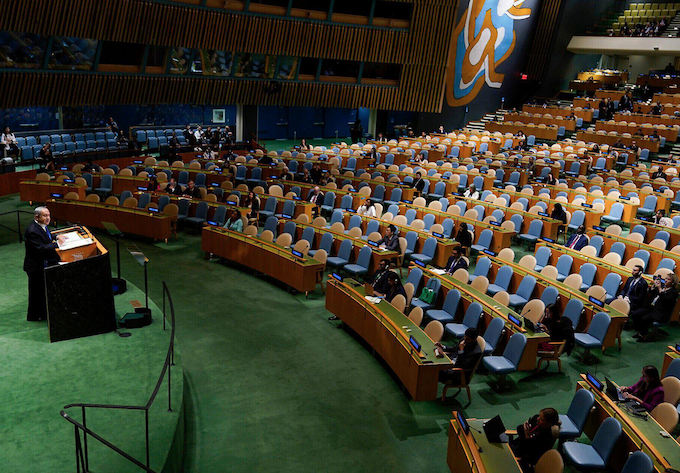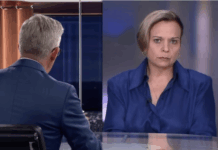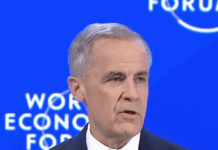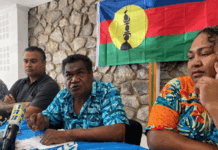
New Zealanders deserve to know how the country’s foreign policy is made, writes John Hobbs.
ANALYSIS: By John Hobbs
The New Zealand government remains unwilling to support Palestinian statehood recognition at the United Nations General Assembly.
This is a disgraceful position which gives support for Israel’s genocide in Gaza and seriously undermines our standing. Of the 193 states of the UN, 157 have now provided statehood recognition. New Zealand is not one of them.
The purpose of this opinion piece is to highlight the troubling lack of transparency in how the government deliberates on its foreign policy choices.
Government decisions and calculations on foreign policy are being made behind closed doors with limited public scrutiny, unlike other areas of policy, where at least a modicum of transparency occurs.
The government has, over the past two years, exceeded itself in obscuring the process it goes through, without explaining its approach to the question of Palestine.
New Zealand still inconceivably lauds the impossible goal of a two-state solution, the hallmark of successive governments’ foreign policy positions on the question of Palestine, but does everything to not bring about its realisation.
To try to understand the basis for New Zealand’s approach to Gaza and the risks generated by the government’s lack of direct action against Israel, I placed an Official Information Request (OIA) with the Minister of Foreign Affairs and Trade, Winston Peters. I requested copies of advice that had been received on New Zealand’s obligations under the Convention on the Prevention and Punishment of the Crime of Genocide, 1948.
Plausible case against Israel
My initial OIA request was placed in January 2024, after the International Court of Justice had determined there was a plausible case that Israel was committing genocide in Gaza. At that point, about 27,000 people in Gaza had been killed, mainly women and children. My request was denied.
I put the same OIA request to the minister in June 2025. By this time, nearly 63,000 people had been killed by Israel. At the time of my second request there was abundant evidence reported by UN agencies of Israel’s tactics. Again, my request for information was denied.
I appealed the refusal by the minister of foreign affairs to the Office of the Ombudsman. The Ombudsman reviewed the case and accepted that the minister of foreign affairs was within his right to refuse to provide the material.
The basis for the decision was that the advice given to the minister was subject to legal professional privilege, and that the right to protect legally privileged advice was not outweighed by the public interest in gaining access to that advice.
The refusal by the minister and the Ombudsman to make the advice available is deeply worrying. Although I am not questioning the importance of protecting legal professional privilege, I cannot imagine an example that could be more pressing in terms of “public interest” than the complicity of nation states in genocide.
Indeed, the threshold of legal professional privilege was never meant to be absolute. Parliament, in designing the OIA regime, had this in mind when it deemed that legal professional privilege could, under exceptional circumstances, be outweighed by the public interest.
The Office of the Ombudsman has ruled in the past that legal professional privilege is not an absolute; it accepted that legal advice received by the Ministry of Health on embryo research had to be released, for example, as it was in the public interest to do so, even though it was legally privileged.
Puzzling statement
The Ombudsman concludes his response to my request with the puzzling statement that the “general public interest in accountability and transparency in government decision-making on this issue is best reflected in the decisions made after considering the legal advice, rather than what is contained in the legal advice.”
The point I was trying to clarify is whether the government is acting in a manner that reflects the advice it has received. If it has received advice that New Zealand must take particular steps to fulfil its obligations under the Genocide Convention, and the government has chosen to ignore that advice, then surely New Zealanders have a right to know.
The content of the advice is extremely relevant: it would identify any contradictions between the advice the government received and its actions. Through public access to such information, governments can be held to account for the decisions they make.
The Independent International Commission of Inquiry on the Occupied Palestinian Territory, including East Jerusalem and Israel, concluded on September 16 that Israeli authorities and security forces committed four out of the five underlying acts of genocide. Illegal settlers have been let loose in the West Bank under the protection of the Israeli army to harass and kill local Palestinians and occupy further areas of Palestinian land.
At the UN General Assembly, the New Zealand government took a stance that is squarely in support of the Israeli genocide, also supported by the United States. International law clearly forbids the act of genocide, in Gaza as much as anywhere else, including the attacks on Palestinian civilians living under occupation in the West Bank and East Jerusalem.
In 2015-16, New Zealand co-sponsored a UN Security Council resolution that condemned the illegality of Israel’s actions in the Occupied West Bank, with the intention of supporting a Palestinian state. New Zealand’s recent posture at the General Assembly undermines this principled precedent.
That New Zealand could not bring itself to offer the olive branch of statehood recognition is morally repugnant and severely damages our standing in the international community. The New Zealand public has the right to demand transparency in its government’s decision-making.
The advice from the Ministry of Foreign Affairs and Trade to the minister cannot be hidden behind the veil of legal professional privilege.
John Hobbs is a doctoral student at the National Centre for Peace and Conflict Studies, University of Otago. This article was first published by the Otago Daily Times and is republished with the author’s permission.









































